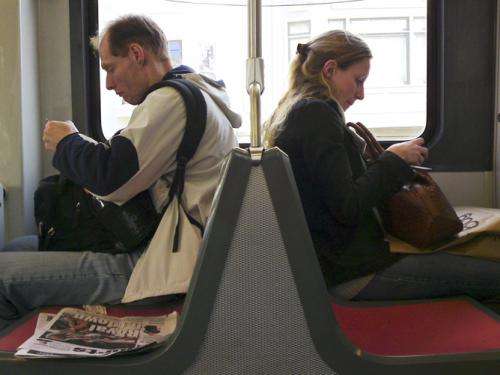Hand out money with my mobile? I think I'm ready

A service is soon to launch in the UK that will enable us to transfer money to other people using just their name and mobile number. Paym is being hailed as a revolution in banking because you can pay people without needing to know their account number or sort code.
In many respects it is. Paym cuts out the need for a dash to a cash machine. Distance is also not an issue as you could easily top up your children's bank balance when they are away from home, solving immediate financial dilemmas.
And the main security risk appears to come from user error – the one thing you yourself can actually control.
What is Paym?
As of 29 April, customers of nine banks including Barclays, Halifax, TSB and Santander can use Paym. Although each will have their own approach to offering the service, the principle remains the same for all. As long as you have registered your mobile number and the receiver of the payment has also registered their mobile number, you should be able to use an app on your phone or an internet banking option to make the payment.
It sounds simple because for you, the customer, it is supposed to be.
This simplicity has made systems similar to Paym phenomenally successful in many parts of the world. M-Pesa is one particularly popular version that has been operating for several years in India and Kenya.
As technology evolved over the past decades, the typical cabled telecommunications structure used in developed nations such as the UK, the US or Australia couldn't be delivered on the same terms for many African, Asian and South American regions.
While many western nations had an existing infrastructure that had evolved over 100 years and could be adapted to make room for more cables, the costs of bringing it in afresh in many developing countries was prohibitively expensive.
More recent developments in mobile telecommunications such as 3G and 4G networks, on the other hand, are easier to deploy. The cable costs are low and by strategically positioning the mobile towers needed to run the network, you can reach a large population of customers.
The use and trust of this technology in developing countries shows us how it could offer interesting benefits to new markets. We all make one-off payments, where the speed of technology could easily beat the slowness of cheques.
Parents probably recall when they have to help out a hapless teen or university student with a cash top-up when they are away from the nest, making Paym a potentially essential service. We could pay babysitters, lend a tenner to a friend and cover school trips for our younger children when they've forgotten to mention that it's today.
Additionally, we could find that sole traders, market stalls and micro businesses thrive, knowing that they could have a way for a casual customer who otherwise did not have the cash in their pocket to make an immediate transaction for that artisan product. In fact I am sure that entrepreneurs out there could find other ways of offering services and encourage Paym style payments.
And it is a free service
Paym assures us that there is little risk in using this service but, as with all financial transactions, it pays to be cautious. Card fraud is a known issue, chip and pin is not infallible and there have been issues with some retailers when using contactless payments.
There is a transaction limit of £20 and three transactions a day on contactless payments. That means there is still the potential for a £60 fraud to occur. While this is a relatively small amount, it could still cause financial problems.
With Paym, depending on your account and the agreement you have made with your bank, you can transfer up to £250 per day. That's a significant amount of money if something were to go awry.
For a start, you must take care when entering the mobile number of the recipient. That seems obvious but mobile numbers are 11 digits in length and we've all typed in the wrong number at some point. You should also include the name of the recipient in the transaction, via your smartphone or web browser application. But as we all know, there are many John Smiths out there, so the probability exists that you could pay someone other than your friend John Smith.
But because the UK service links bank accounts, users will avoid the most serious type of crime that affects M-Pesa – the robbery or deception of the agents used to deposit money into the system.
With Paym, would have to have knowledge of the passwords and other security mechanisms to use your banking app or online account so you are reasonably well protected in this respect. As you already are already a bank customer, the service like cheque banking, contactless or chip-and-pin is free for you to use.
Should you use it?
This is certainly a payment technology worth trying. I like using contactless in cafes, for example. Paym seems like a useful way for me to give money to family and friends and I can see potentially useful applications for charities, schools, community groups and microbusinesses too.
If you intend to use it, practice with small amounts. Don't suddenly pay £200 to someone. Give them a very small amount, eventually the opportunity will present itself. Check and double check their phone number. In all transactions, the best way to make sure you have the right number and name is to give them a call on the number you are going to use. This will considerably reduce the risk of unintended errors.
Provided by The Conversation
This story is published courtesy of The Conversation (under Creative Commons-Attribution/No derivatives).
![]()

















